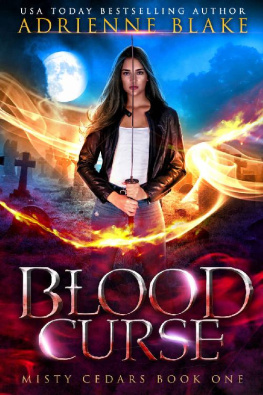David Guterson - Snow Falling on Cedars
Here you can read online David Guterson - Snow Falling on Cedars full text of the book (entire story) in english for free. Download pdf and epub, get meaning, cover and reviews about this ebook. year: 2010, publisher: Bloomsbury Publishing, genre: Detective and thriller. Description of the work, (preface) as well as reviews are available. Best literature library LitArk.com created for fans of good reading and offers a wide selection of genres:
Romance novel
Science fiction
Adventure
Detective
Science
History
Home and family
Prose
Art
Politics
Computer
Non-fiction
Religion
Business
Children
Humor
Choose a favorite category and find really read worthwhile books. Enjoy immersion in the world of imagination, feel the emotions of the characters or learn something new for yourself, make an fascinating discovery.

- Book:Snow Falling on Cedars
- Author:
- Publisher:Bloomsbury Publishing
- Genre:
- Year:2010
- Rating:4 / 5
- Favourites:Add to favourites
- Your mark:
- 80
- 1
- 2
- 3
- 4
- 5
Snow Falling on Cedars: summary, description and annotation
We offer to read an annotation, description, summary or preface (depends on what the author of the book "Snow Falling on Cedars" wrote himself). If you haven't found the necessary information about the book — write in the comments, we will try to find it.
Snow Falling on Cedars — read online for free the complete book (whole text) full work
Below is the text of the book, divided by pages. System saving the place of the last page read, allows you to conveniently read the book "Snow Falling on Cedars" online for free, without having to search again every time where you left off. Put a bookmark, and you can go to the page where you finished reading at any time.
Font size:
Interval:
Bookmark:
ON CEDARS
David Guterson

Bloomsbury Publishing, London, Berlin and New York
First published in Great Britain in 1995 by Bloomsbury Publishing Plc
36 Soho Square, London, W1D 3QY
This electronic edition published in 2010 by Bloomsbury Publishing Plc
Copyright 1995 by David Guterson
Introduction copyright 2007 by Nicholas Evans
The moral rights of the author and illustrator have been asserted
All rights reserved
You may not copy, distribute, transmit, reproduce or otherwise make available this publication (or any part of it) in any form, or by any means (including without limitation electronic, digital, optical, mechanical, photocopying, printing, recording or otherwise), without the prior written permission of the publisher. Any person who does any unauthorised act in relation to this publication may be liable to criminal prosecution and civil claims for damages
A CIP catalogue record for this book is available from the British Library
ISBN 9781408806760
www.bloomsbury.com/davidguterson
Visit www.bloomsbury.com to find out more about our authors and their books
You will find extracts, author interviews, author events and you can sign up for newsletters to be the first to hear about our latest releases and special offers
To my mother and father,
with gratitude
Praise for Snow Falling on Cedars
Snow Falling on Cedars is a vivid and spellbinding novel, made unforgettable by David Gutersons mastery of detail and his wise and generous heart. I could not put this book down Colin Harrison, author of Bodies Electric
A beautifully written book, it is in essence a whodunnit, but is so rich a read that it far outstrips its form Scotland on Sunday
As much a clever thriller as a poetic evocation of a small community a novel of both brilliant surface and fascinating depth Literary Review
An absorbing and beautiful work Guardian
Dramatic and suspenseful Snow Falling on Cedars announces the emergence of a skilful writer Times Literary Supplement
Snow Falling on Cedars recalls the great morality fictions of the 19th century. By setting his novel in the fifties, Guterson permits himself to skirt the self-referential tropes, the knowing ironies, the supremacy of desire over personal morality, that have become axiomatic in much intelligent modern fiction. It is a risky gambit, but his haunting book is the richer for it Sunday Telegraph
Compelling a flawlessly written first novel The New York Times
Nicholas Evans
Ten years ago I was in Seattle, attending one of those so-called literary dinners where authors make speeches to plug their books. Id just finished reading Snow Falling on Cedars for the first time and was in that bereaved limbo you enter when youve been captivated by a book and suddenly its over. The consolation that evening was that local author David Guterson was going to be there too.
The place was packed with fans, all doubtless eager, as I was, to get their precious copy of his book personally inscribed. We expected him to transport us back to the strawberry fields and salmon-seething waters of San Piedro island. Instead, he took us to an altogether different world, the orchards of Washington State, delivering a witty and informal lecture about apple growers. It was a subject hed been researching and soon he had us all entranced.
An hour later, he looked at his watch and, with a kind of boyish charm, said he was sorry but he would have to leave immediately or hed miss the last ferry home. I got to shake his hand but never got my signed copy. What I did get, however, was a glimpse of what I believe helps make Snow Falling on Cedars so special: a searing intellect, a fascination with detail and a seemingly infinite compassion and curiosity about what it is to be human. The book business, like the movie business, increasingly likes to label things. Every new work, however original, has to belong to a genre. This extraordinary debut novel has thus been called a whodunnit, a thriller, a courtroom drama. It is all of those things but, in essence, none of them.
From the opening close-up of the man at the storys centre, sitting with dignity in the courtroom where, like the jury, we will witness his trial for murder, we know something special is happening. The court itself, with its groaning, hissing radiators, its grey light, the smell of damp coats and boots, provides the structure of the story and becomes a kind of character itself: a living, listening, omniscient presence. Beyond its four tall, narrowly arched windows, we watch the snow fall. It is as if life on the island of San Piedro and indeed time itself has been suspended until a verdict is reached.
Most novelists attempt to convey a sense of place, but with Guterson were taken to a different level of knowledge. It soon becomes clear that we are in the hands not simply of a gifted storyteller but of a compulsive researcher. Whether its the intricacies of gill-netting salmon or of samurai swordsmanship, almost every page teaches us something new. But the detail is measured and never distracts from story or character. We get to know the island as if we have grown up there. We can smell the tang of netted salmon in the salt air, taste the freshly harvested strawberries, hear the drip of rain on the moss and fern of the forest floor.
Although the present tense of the story is on San Piedro in 1954, other places at other times are rendered just as vivid: the desert prison camp, with its stinking latrines and relentless sand-laced wind, where the islands Japanese immigrants are interned after Pearl Harbor; the blood-washed beach in the South Pacific where as a young G.I., Ishmael Chambers local reporter, spurned lover and our guide through the maze of half-truth, lies and prejudice uttered in the courthouse is maimed in a poorly planned, heart-thumping, hellish assault.
Gutersons handling of time is masterly. The transitions between present and past are seamless but we always know precisely where we are and through whose eyes we are watching the events unfold. With a fine economy, he opens up his characters lives and tells us their history, their passions and triumphs, the losses, dashed hopes and disillusionments that have shaped them into who they are. Even the most minor of these people, however tangential to the plot, is given his or her own journey, their souls etched, like characters in a Chekhov play, by some hidden yearning or thwarted ambition.
Ultimately, it has to be this very quality, the novels understanding of human nature, that has touched the hearts of the many millions who have read it. In particular, it is the compassionate light its author sheds on how the seeds of racism are sown; on the way man and woman, parent and child, affect each other; on that exquisite pain we inflict on those we love, and who love us, the most.
Im a slow reader and as I grow older and less patient, there is a test Ive come to apply to whether a book has been worth reading. Has it, I ask myself, given me any new insight into the frenzied muddle and puzzle that life seems to be? Without wanting to be too grandiose about it, has it, in short, furthered my understanding of the human condition?
Every time I read Snow Falling on Cedars, the answer is an ever more resounding yes.
I thank the many people who contributed to the writing of this book: Mike Hobbs at Harborview Hospital in Seattle, for his help with matters of forensic pathology; Phil McCrudden for taking me salmon fishing and for carefully reading a draft of the novel; Steve Shapiro for his insights about gill-netting; Leonard Hayashida for his gentle and precise commentary; Walt and Millie Woodward for their courage and conviction as owner-editors of the
Font size:
Interval:
Bookmark:
Similar books «Snow Falling on Cedars»
Look at similar books to Snow Falling on Cedars. We have selected literature similar in name and meaning in the hope of providing readers with more options to find new, interesting, not yet read works.
Discussion, reviews of the book Snow Falling on Cedars and just readers' own opinions. Leave your comments, write what you think about the work, its meaning or the main characters. Specify what exactly you liked and what you didn't like, and why you think so.








